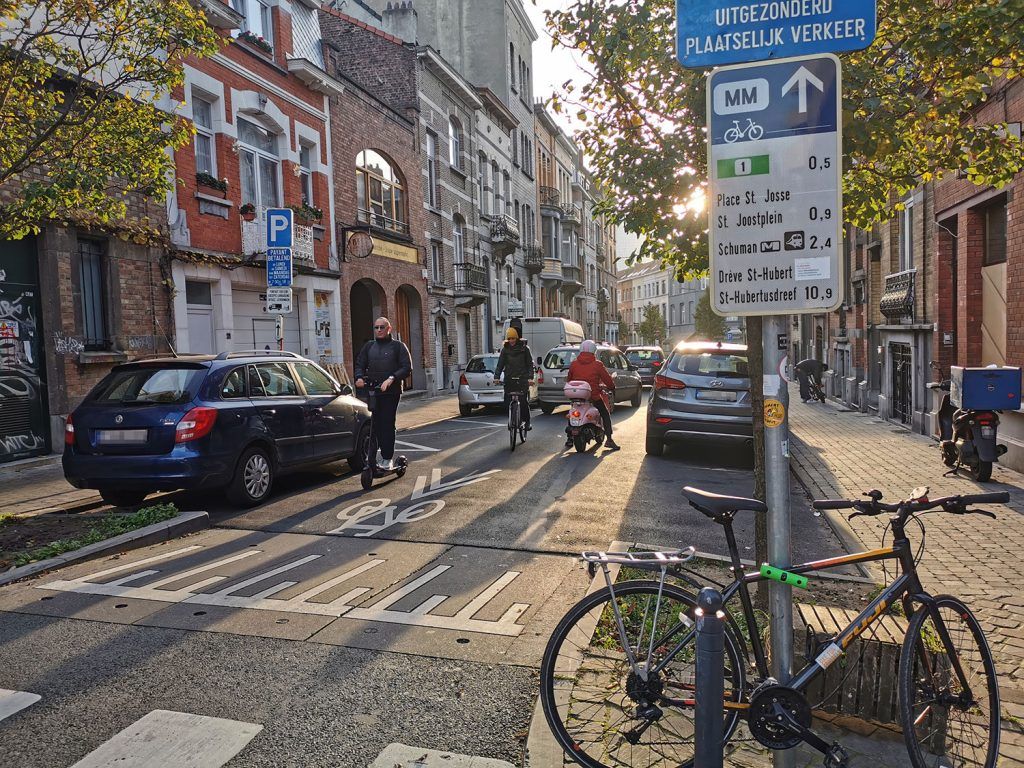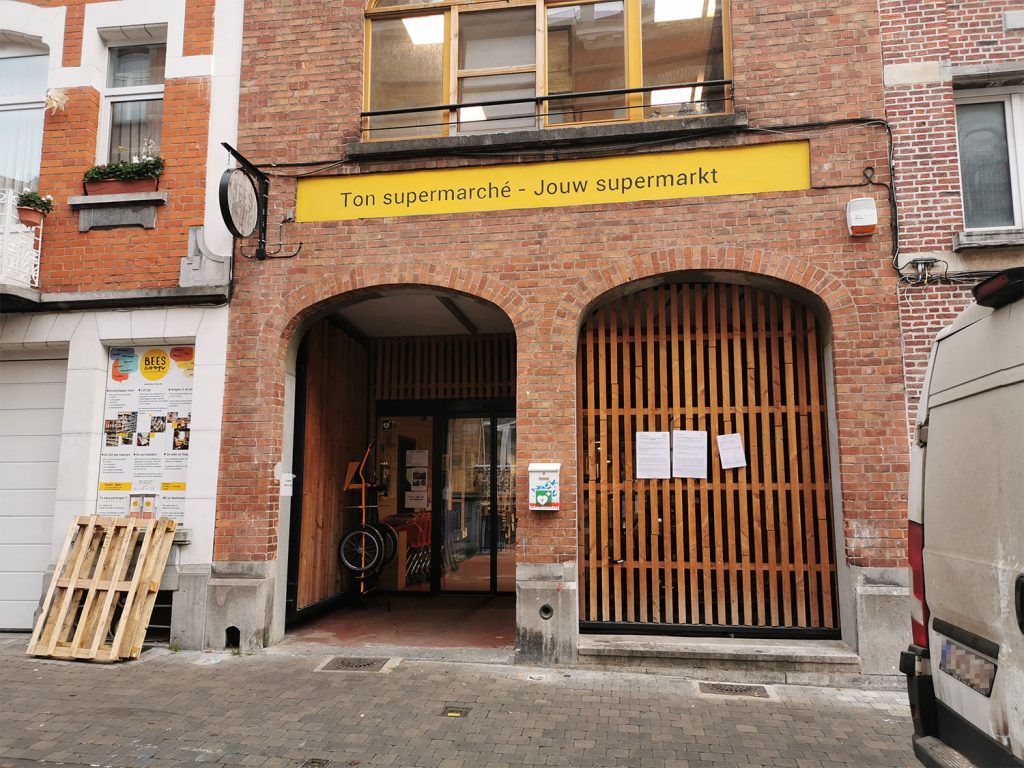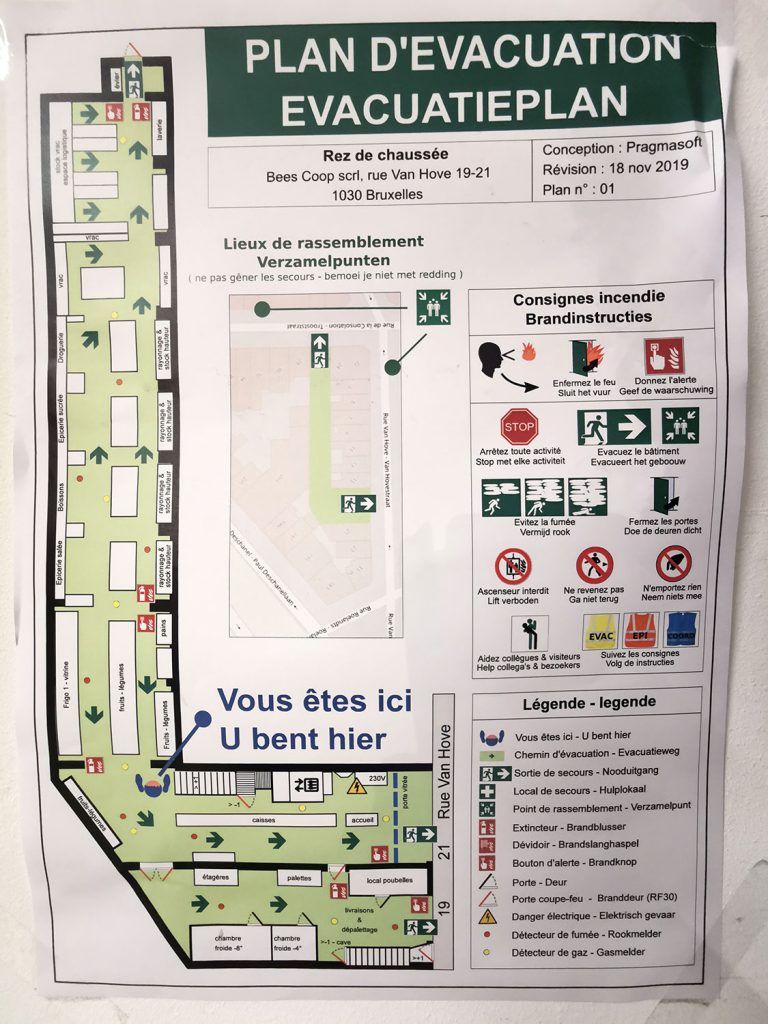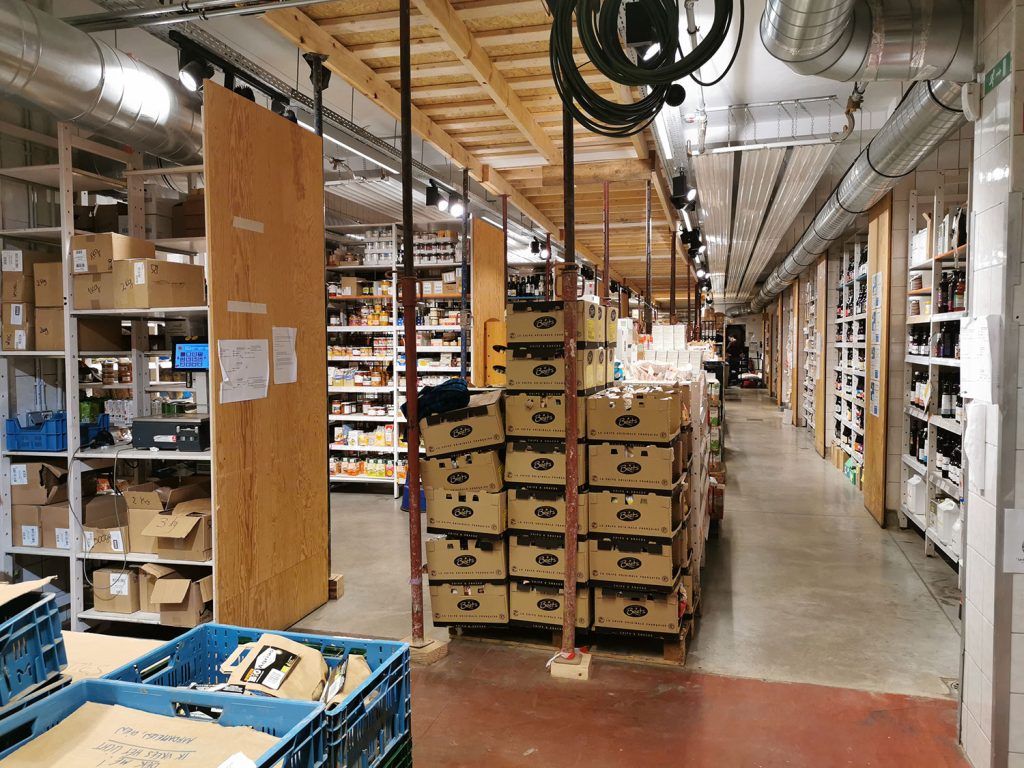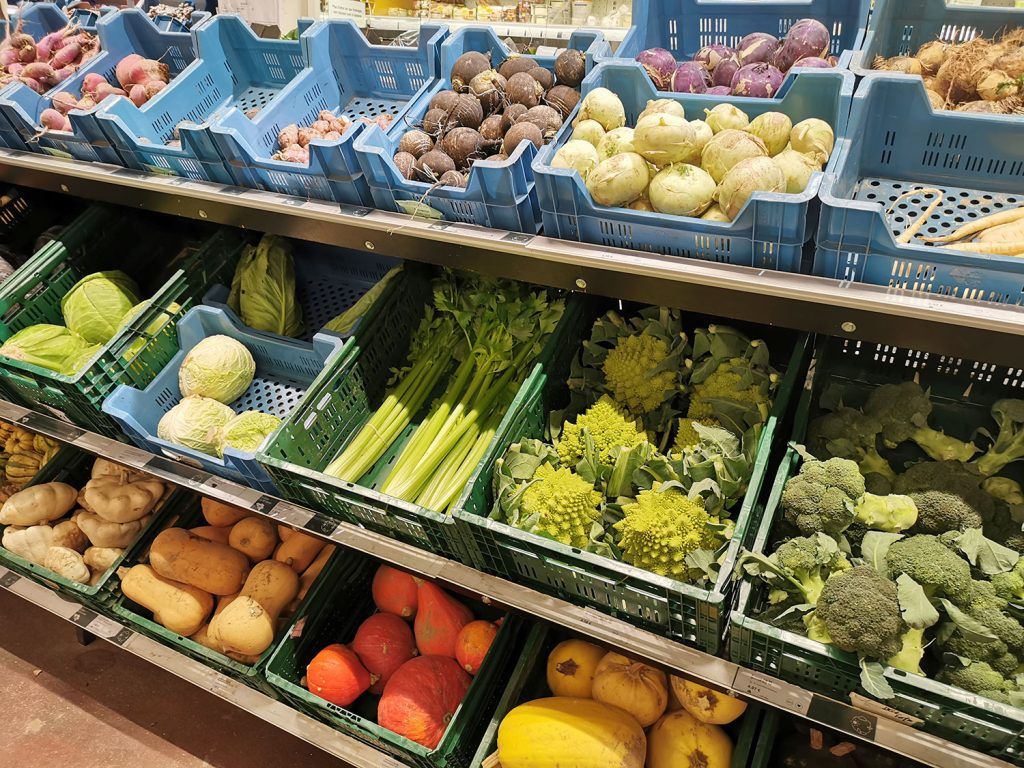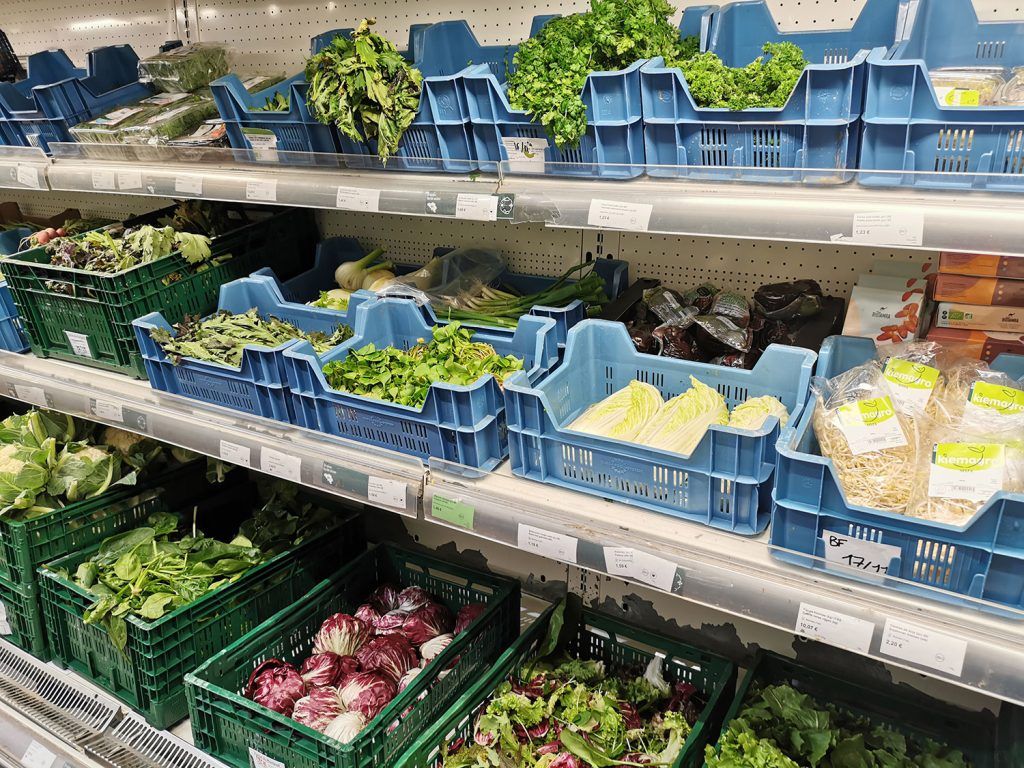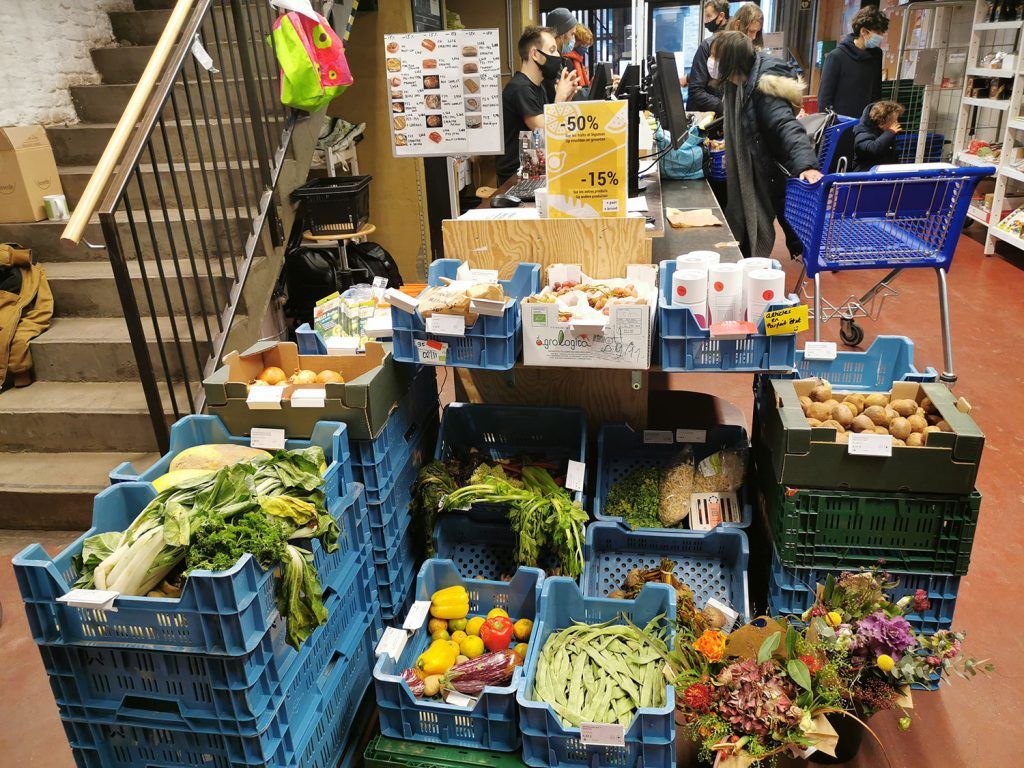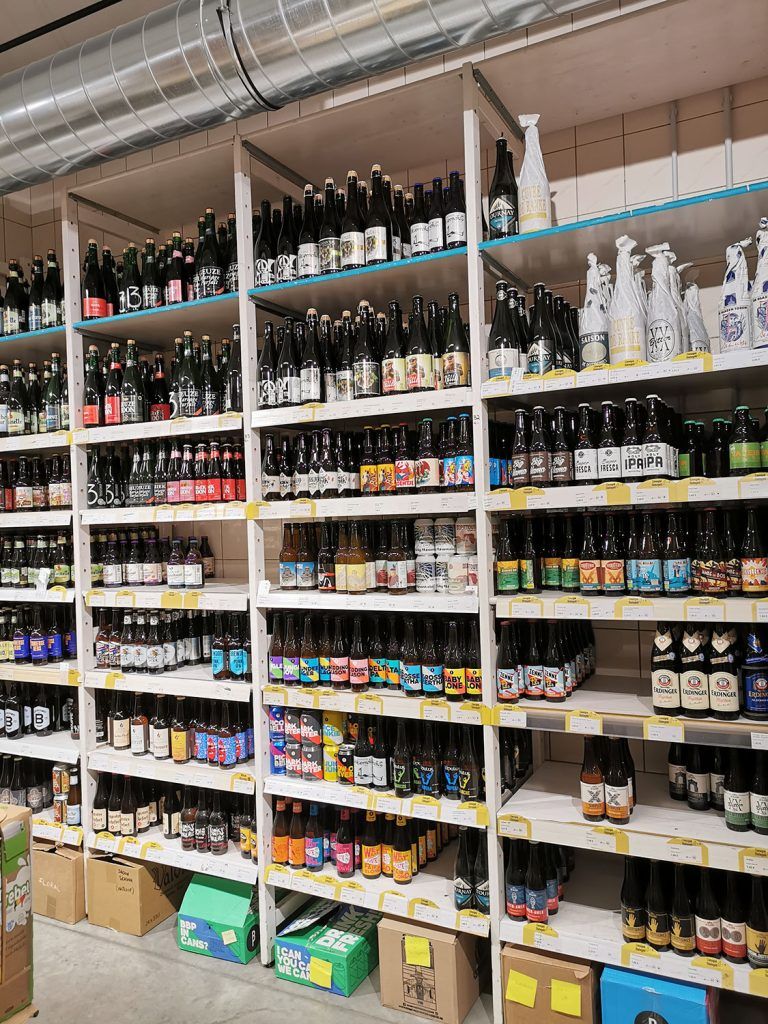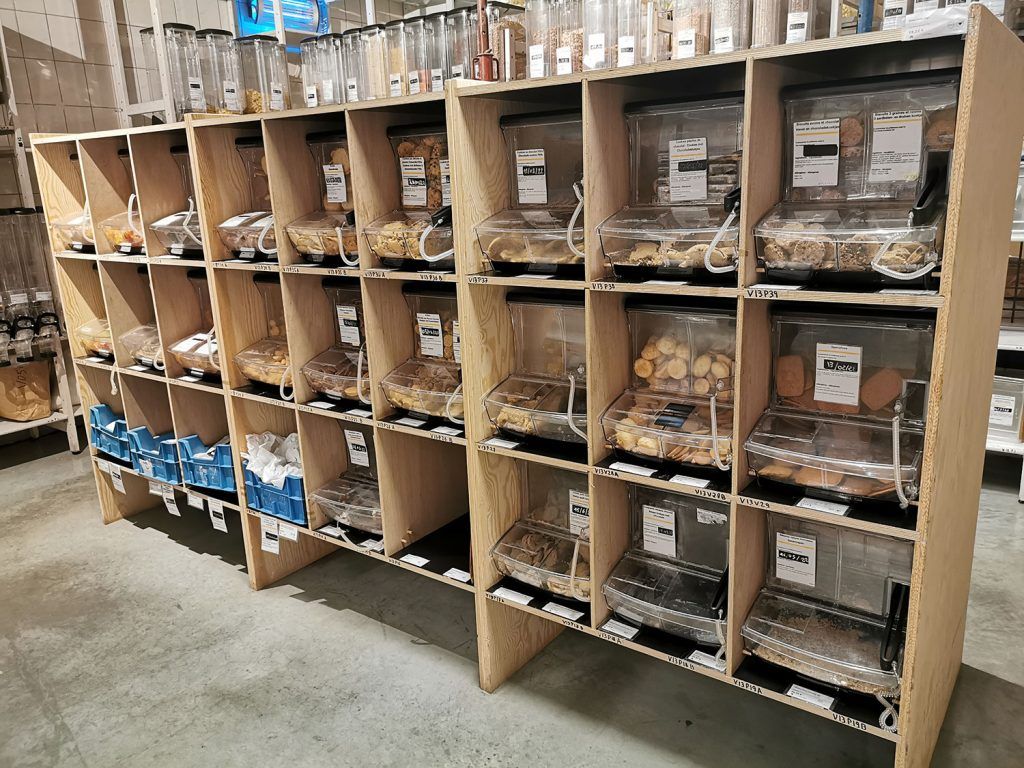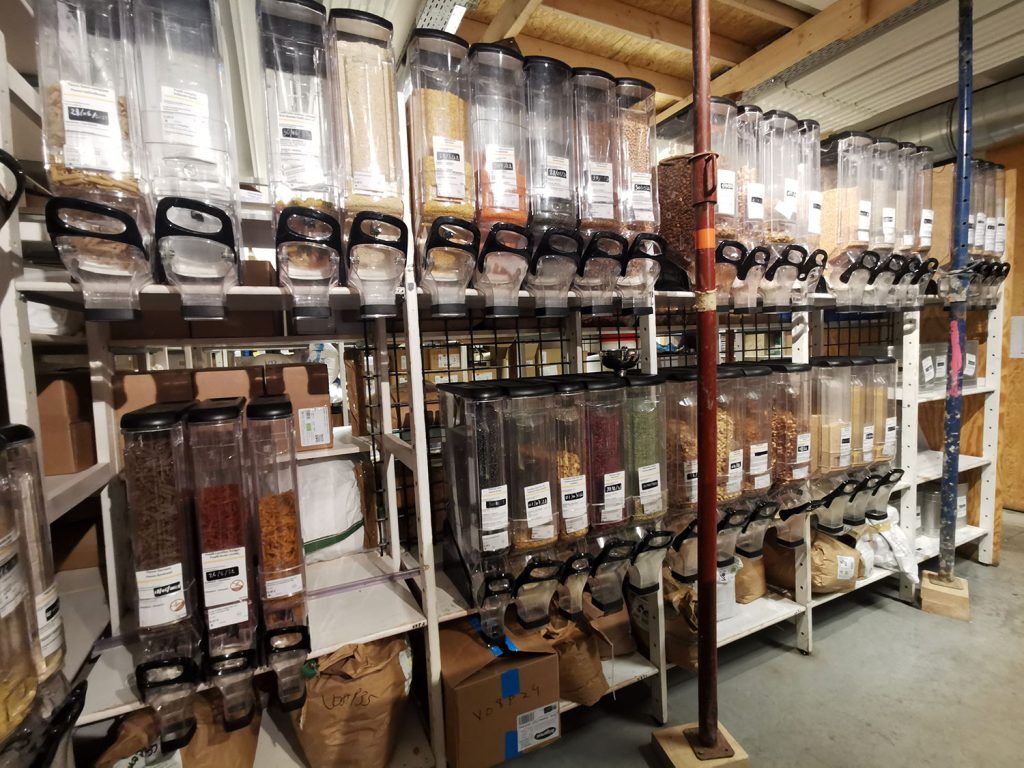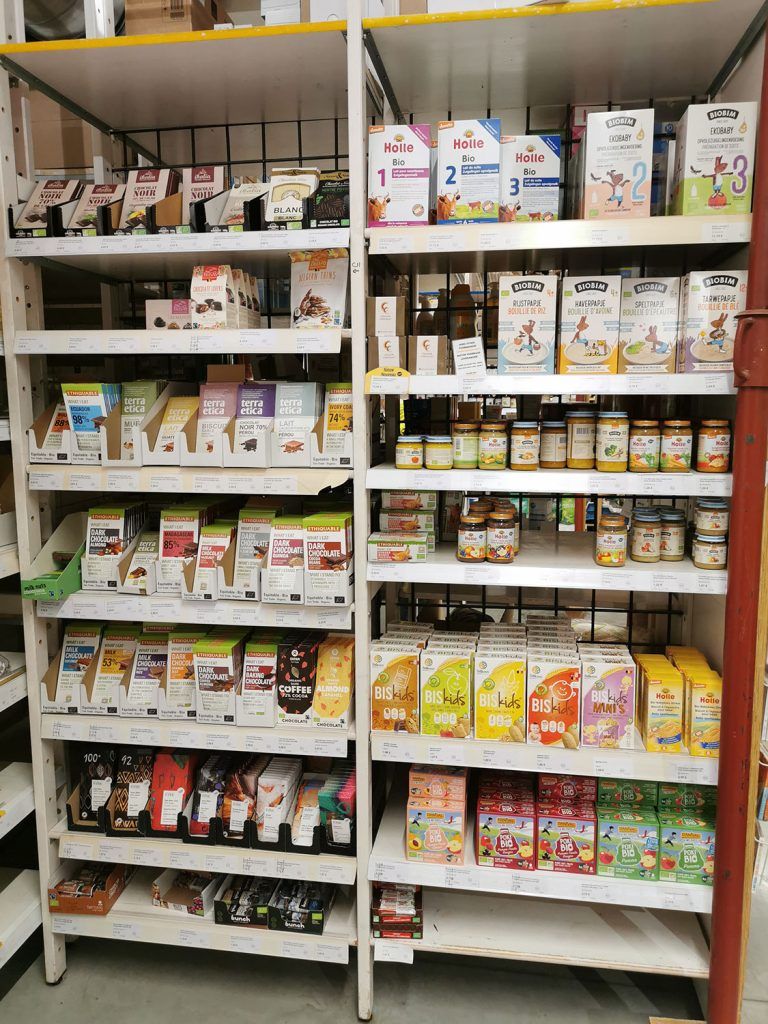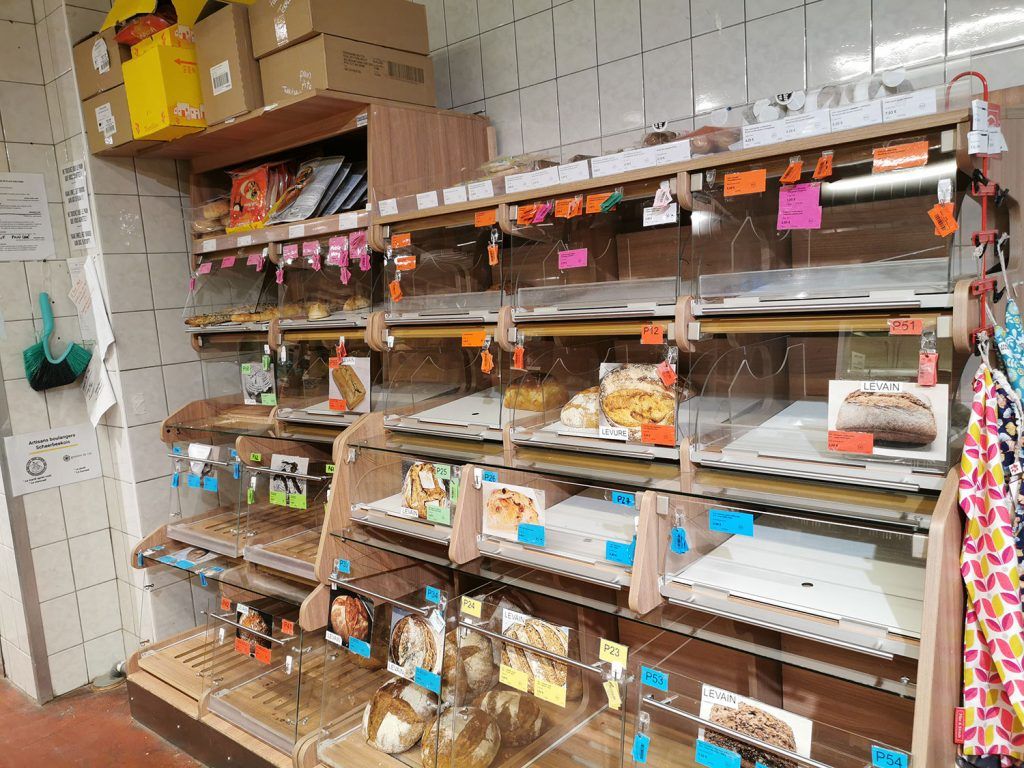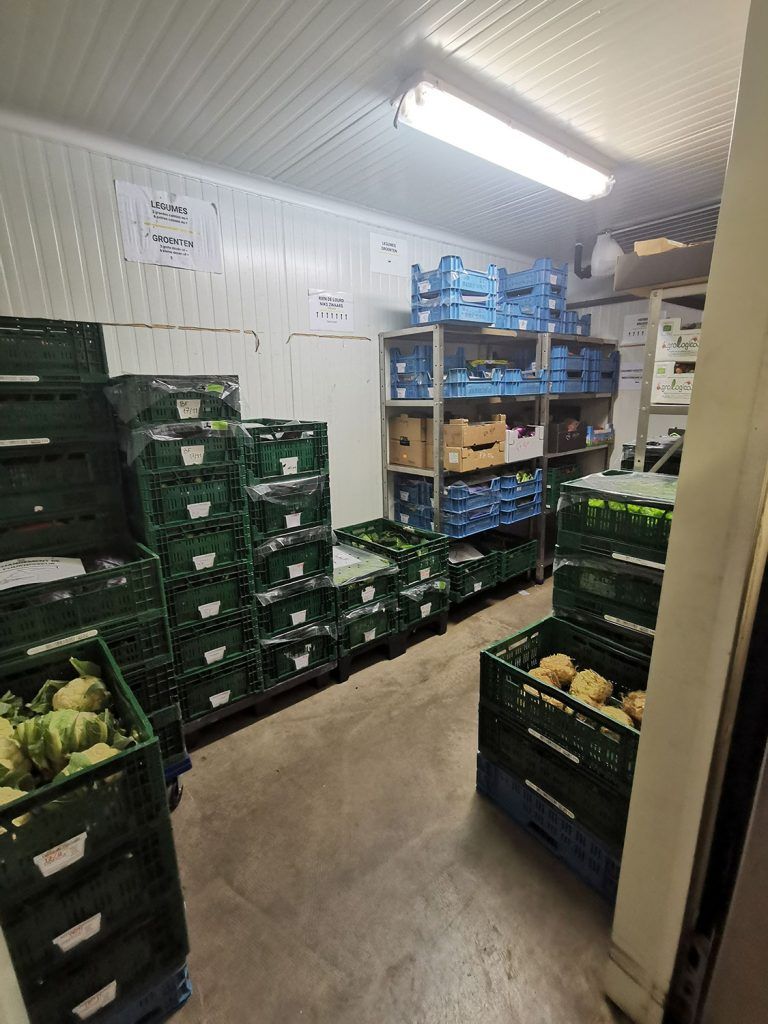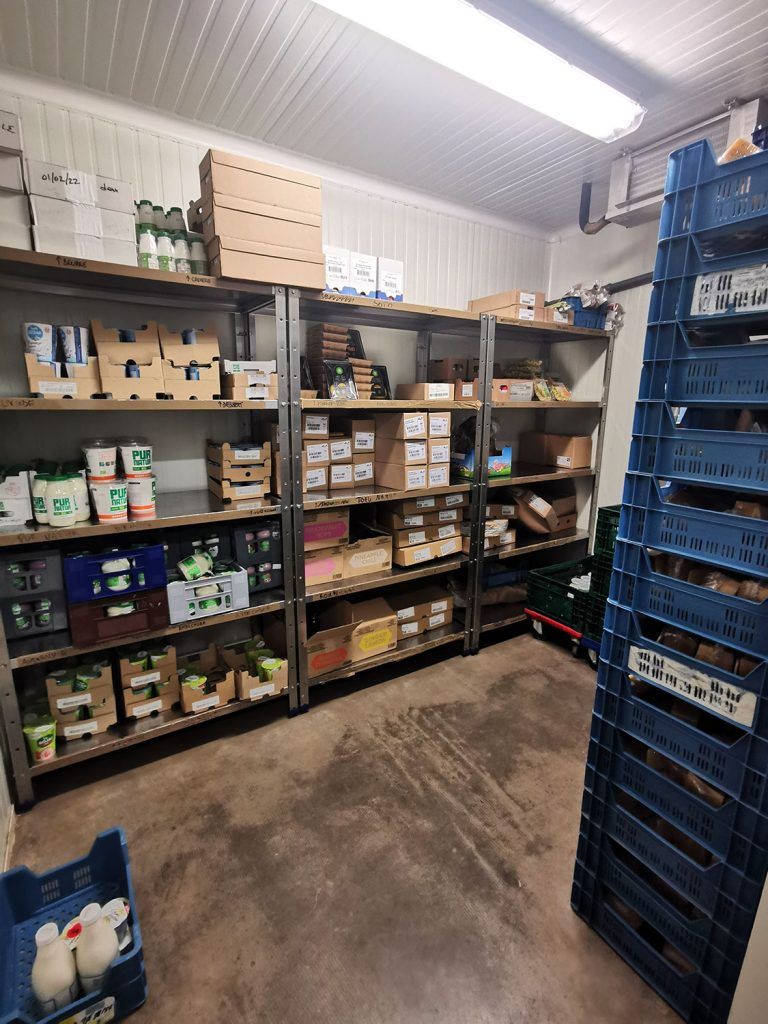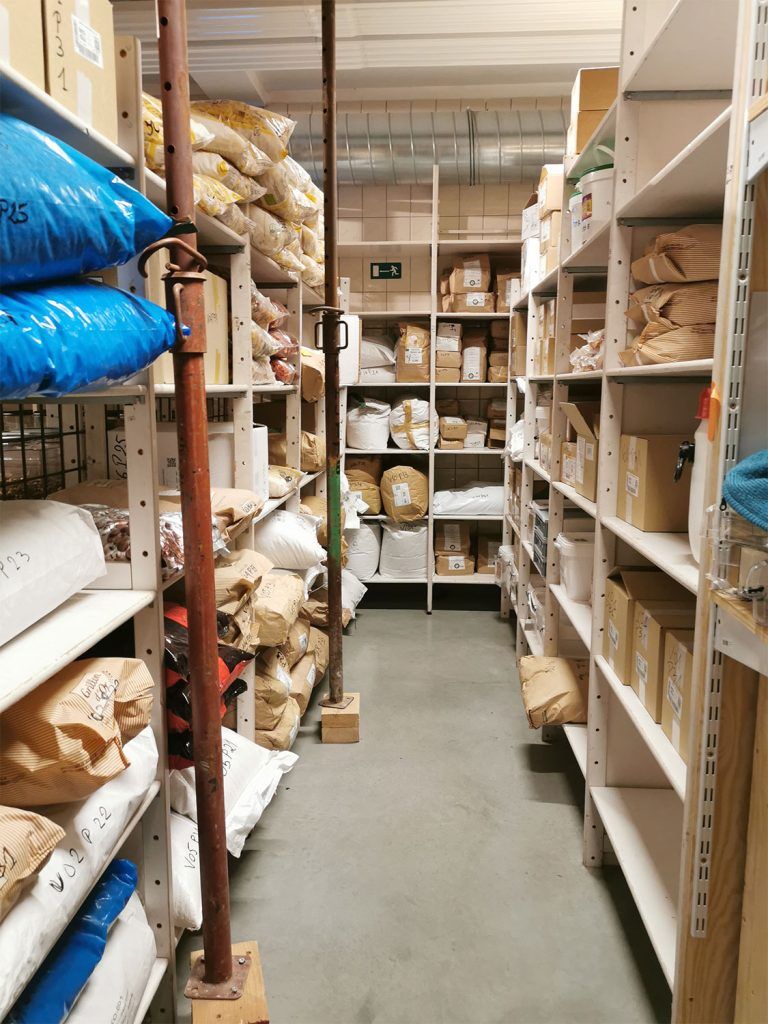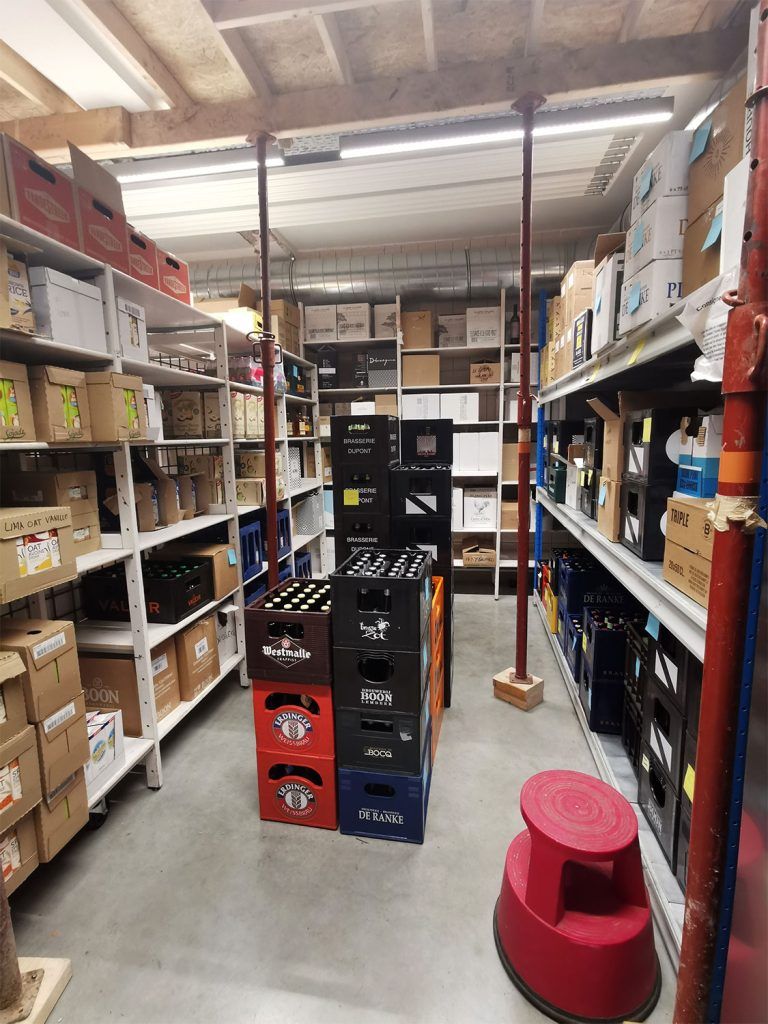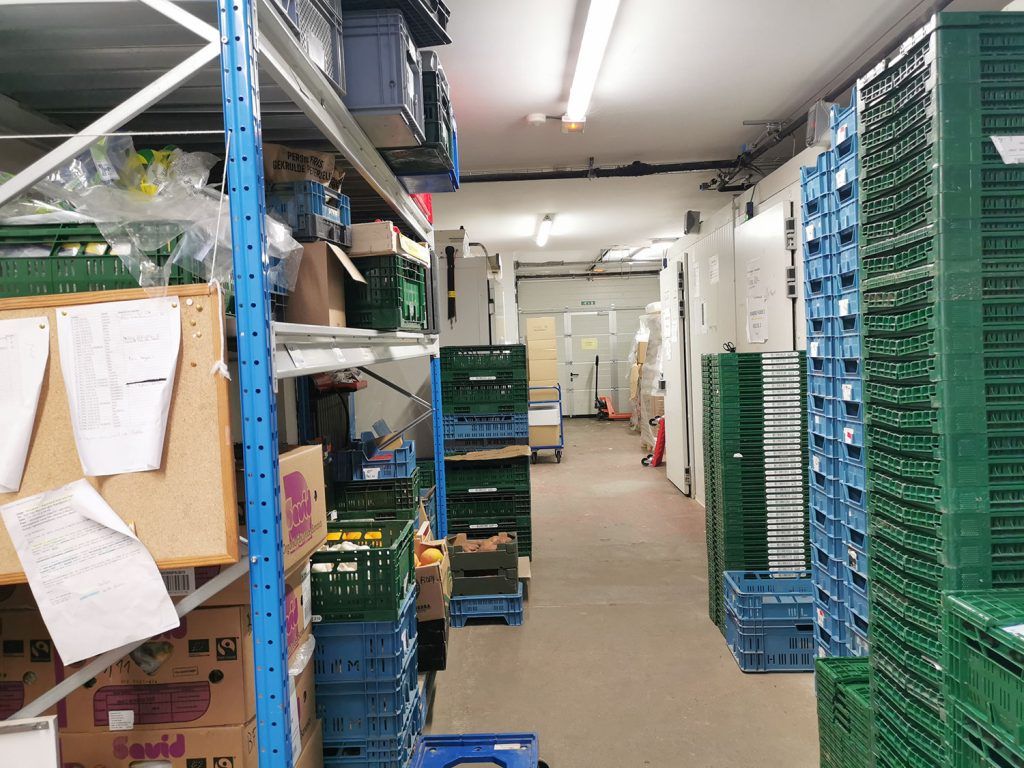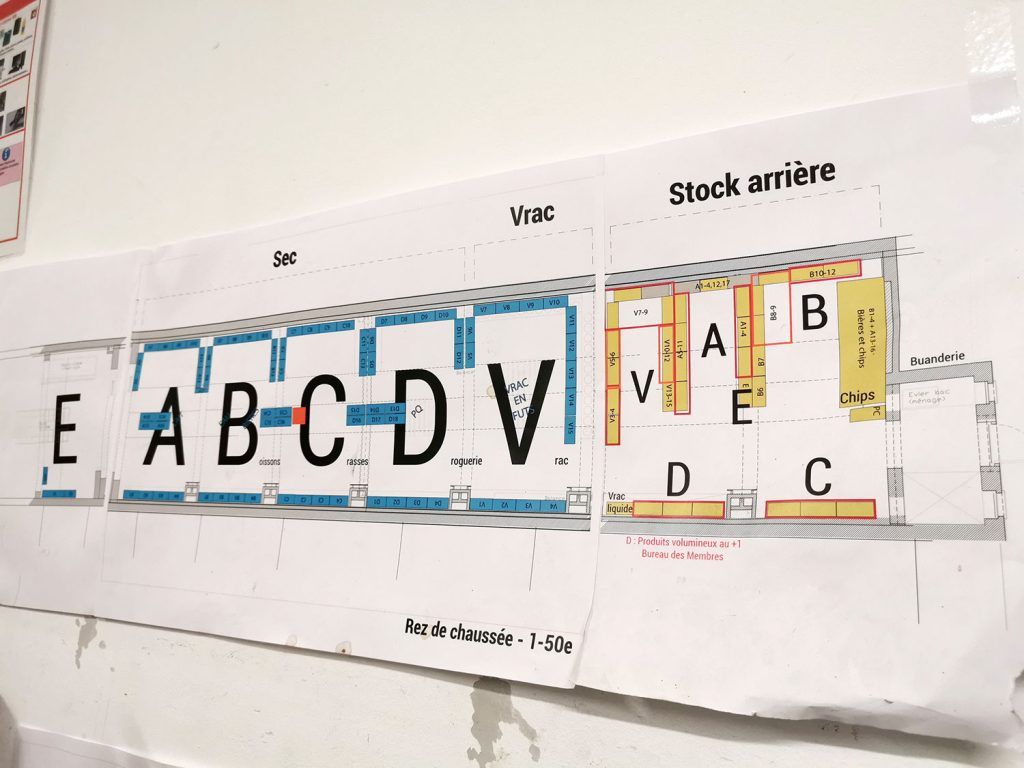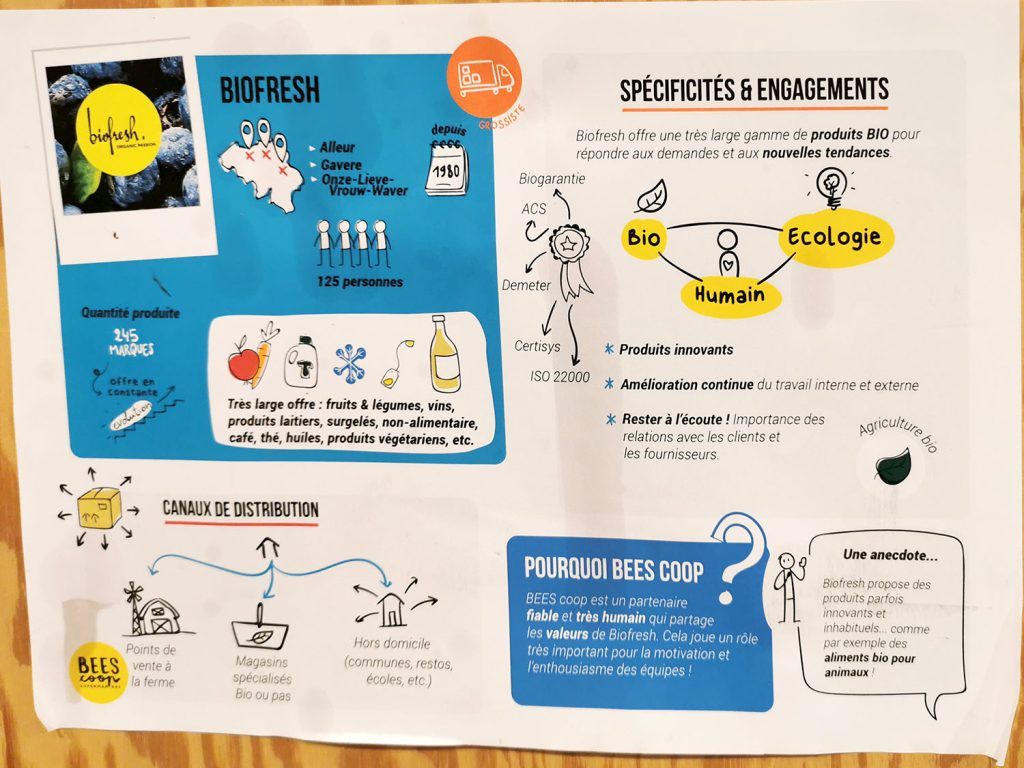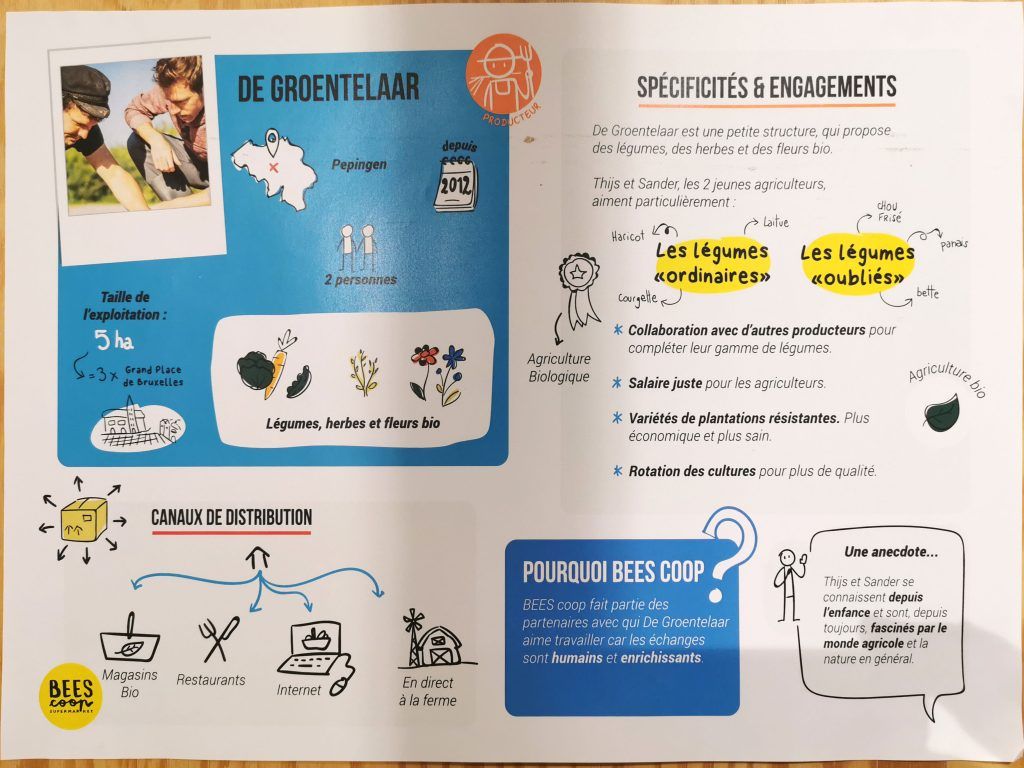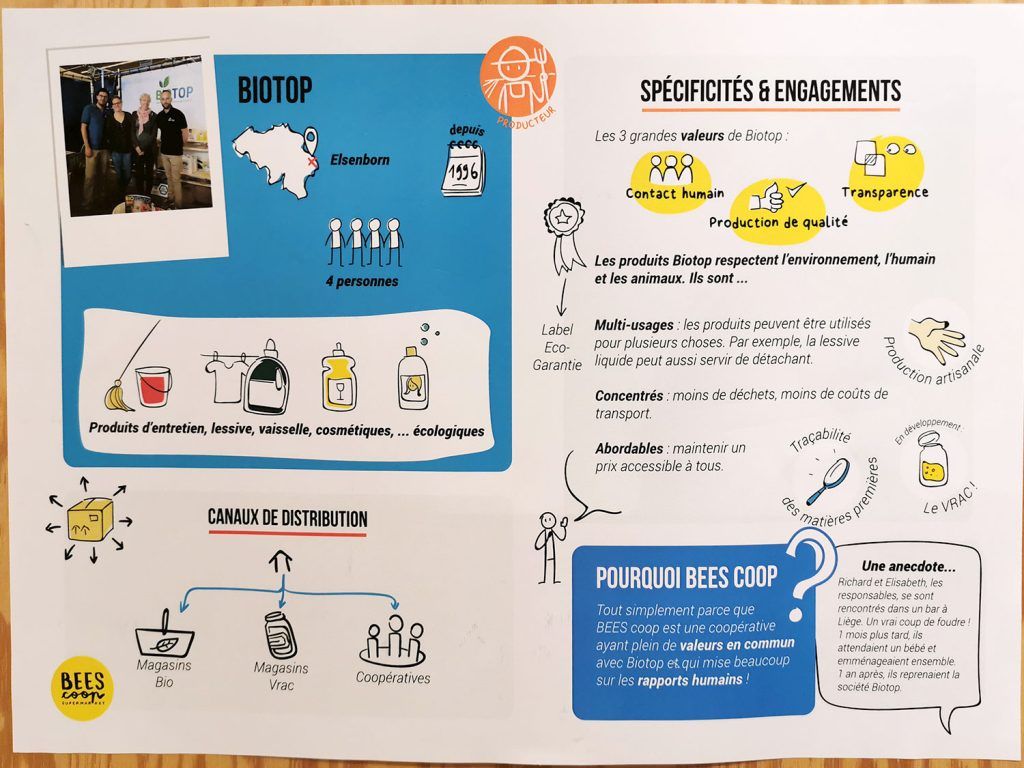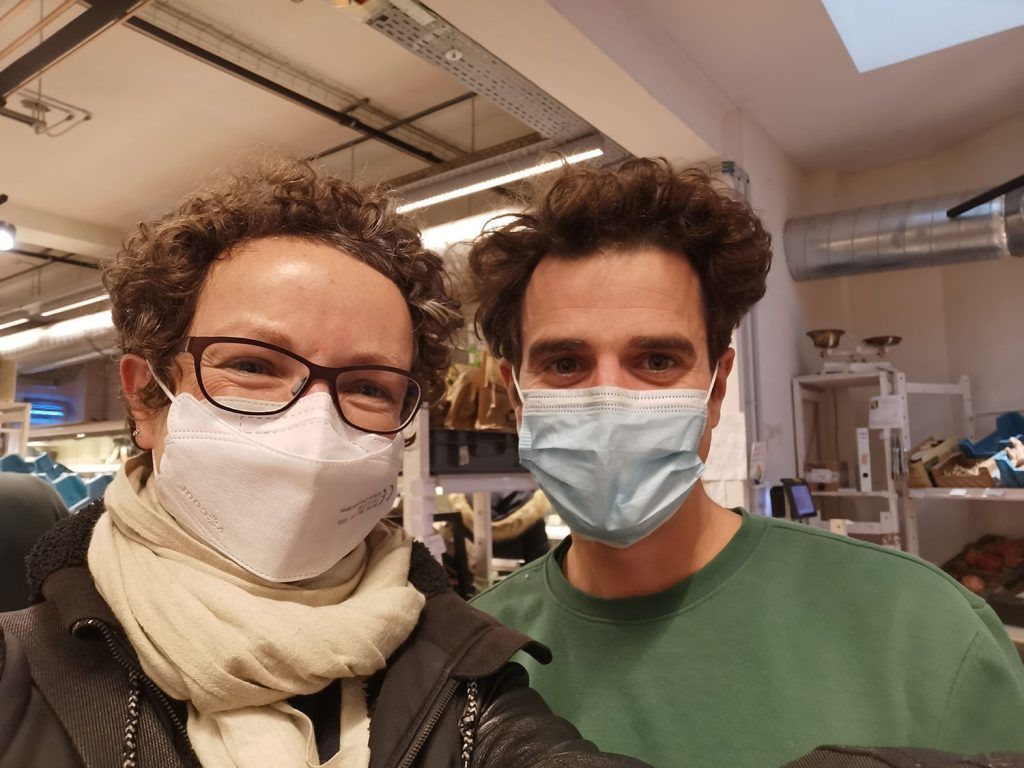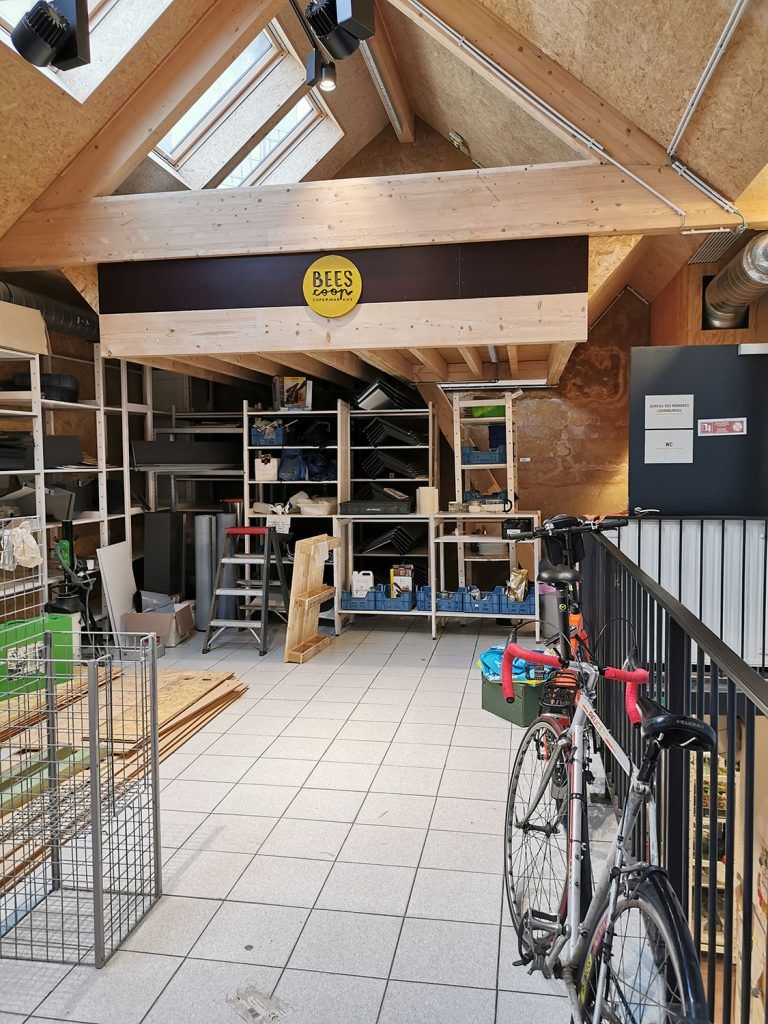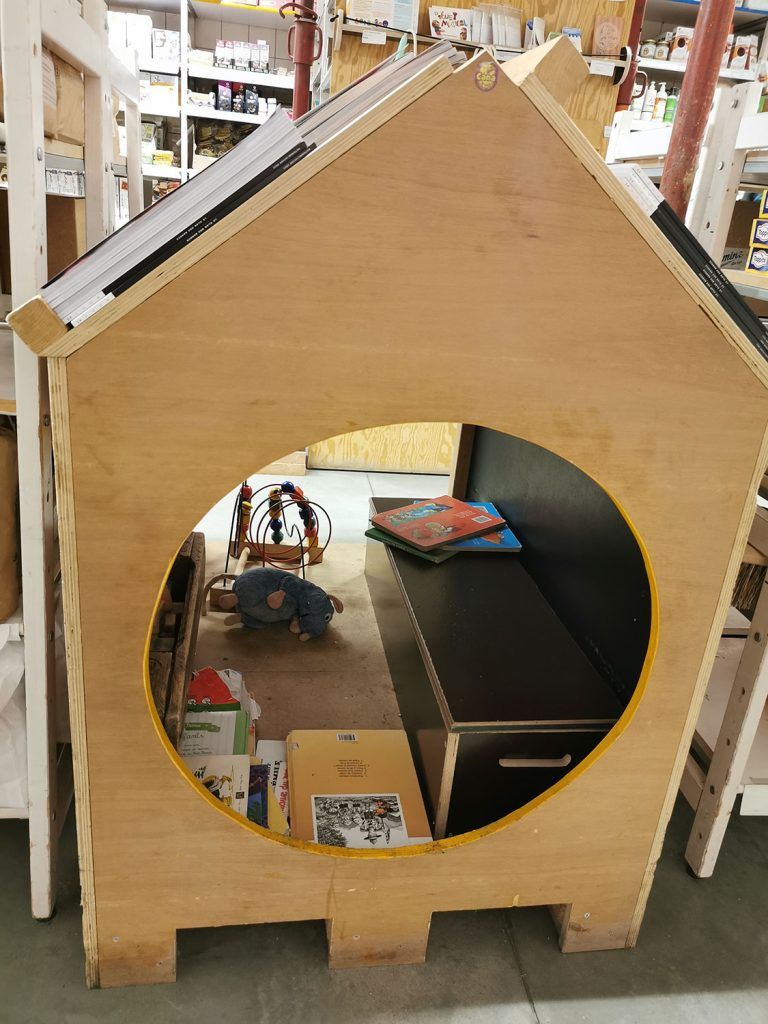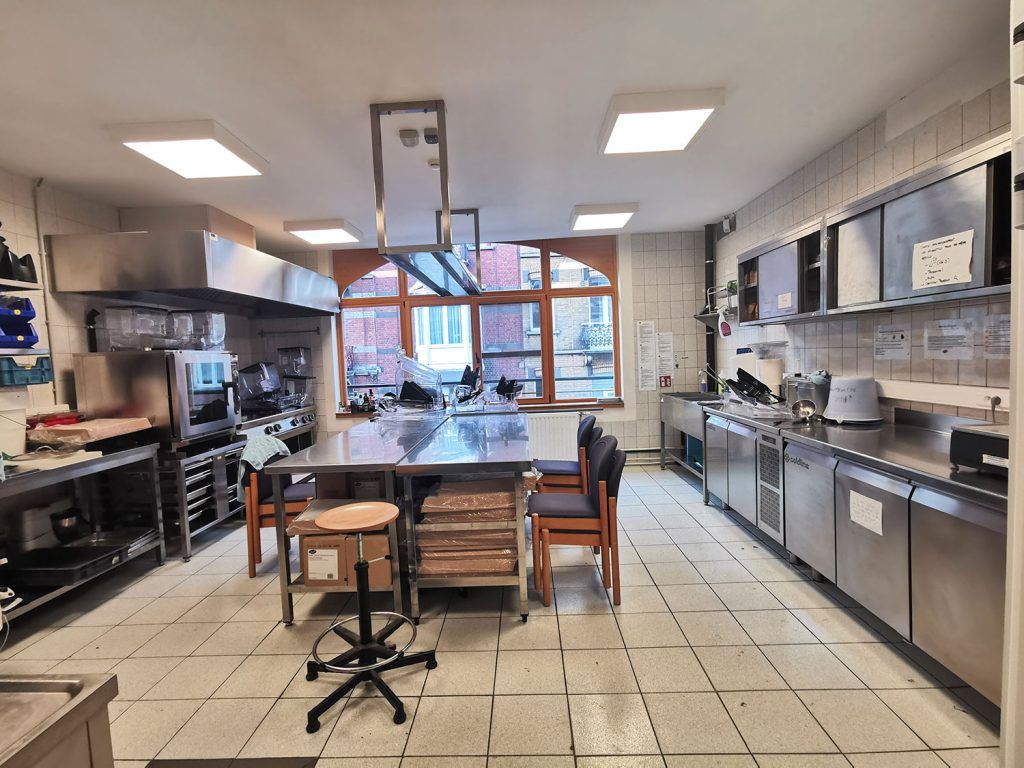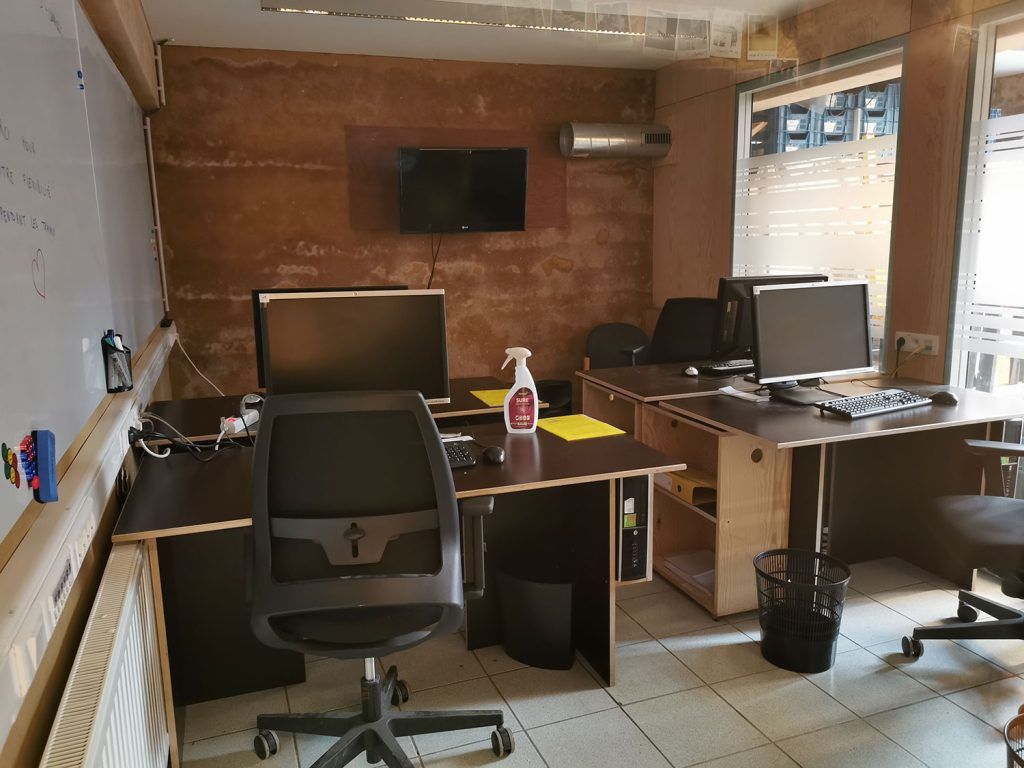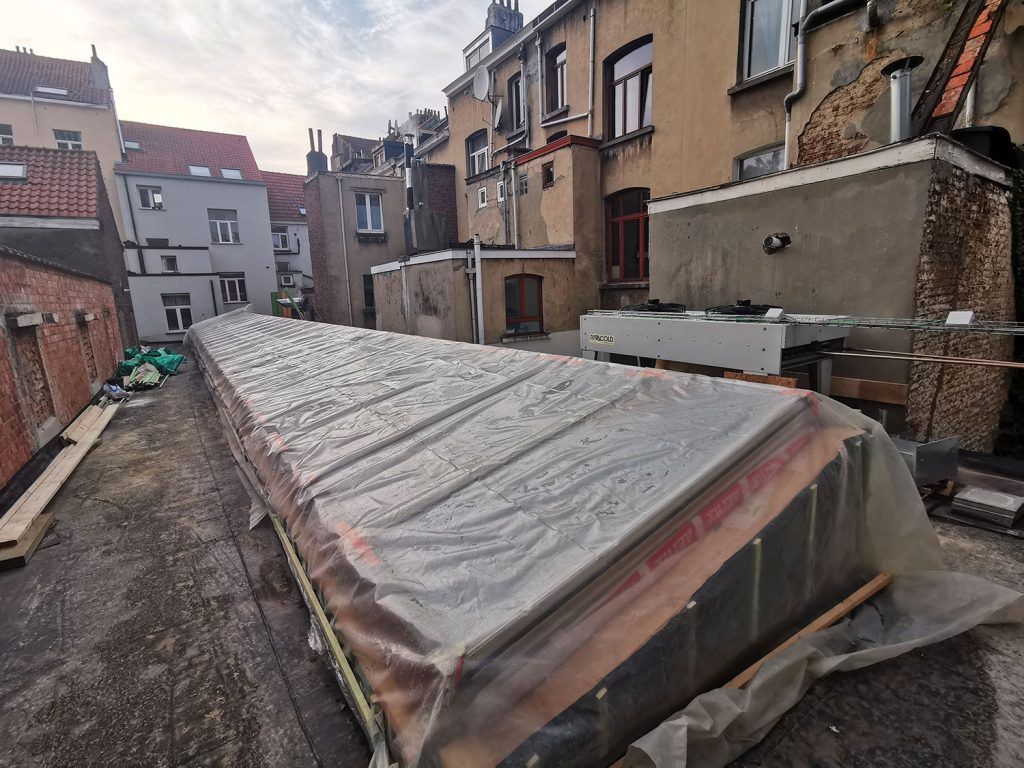This learning journey is part of the project »Pilot Mitmach Supermarkt«.
Four years ago, in September 2017, »BEES Coop supermarket« opened on an area of 1,500 square metres in Brussels – today, the cooperative has 1,500 active members, sells over 4,000 products and makes four million euros in turnover per year.
Until now, the BEES Coop did not need to recruit members: it was the second cooperative supermarket in Europe and the first in Brussels – word spread quickly and members came on their own, Martin Raucent, co-founder of the BEES Coop, tells me as he takes time to show me around the cooperative supermarket in November 2021. I used my return journey from Paris and Lille via Brussels to acquaintances to visit here.
North-east of the city centre
The cooperative is located in Schaerbeek, which borders Brussels city centre to the northeast. Schaerbeek is one of the 19 municipalities of the Brussels-Capital Region: almost 37 percent of the inhabitants come from abroad, almost three quarters of the inhabitants of Schaerbeek have a migration background. Around 16,300 people live in this municipality on one square kilometre – for comparison: in Vienna’s Ottakring district there are 11,800.
Patron supported the purchase
BEES Coop bought their supermarket. They were lucky. They had a patron. The patron bought the land and building for BEES Coop because she wanted to support the project: For her, the approximately 360,000 euros were a social investment for which she did not want any interest.
For the construction, the BEES Coop got money from the bank. The bank demanded guarantees, so five years ago the BEES Coop bought the land and the building from the patron to secure the loan. In the meantime, the BEES Coop has partly rebuilt and insulated the building. The roof is currently being renewed – now daylight comes into the shop from above.
Members and employees
The number of members is currently stagnating: members leave and new ones join – about 25 every month. In addition to the 1,500 active members, there are 2,800 passive members who do not work or shop but hold shares in the cooperative. There is always an employee in the shop – not least as a contact person for the members, who help out for two hours and 45 minutes every four weeks.
“The most important thing is to create your community and get the people used to come and buy at your coop.“
is Martin’s advice to us.
There are eight employees in the BEES Coop, they work about 80 per cent, so that’s six to seven full-time equivalents. “We are well and correctly paid!” Martin tells me, and goes on to say that everyone earns the same: About 2,000 euros net per month, which means there are about 50,000 euros in costs for each employee in the BEES Coop per year. Martin estimates that a supermarket needs at least six employees.
Standard raw mark-up and discounts
Twenty percent is the standard raw mark-up in the BEES Coop. Only on fruit and vegetables, loose goods and meat is a 5 percent surcharge added.
Because offering the right quantities of meat and bread is still a challenge, there are often discounts: 50 percent discount on fruit and vegetables and 15 percent discount on expiring goods – also on bread. When which products get discounts is decided by the employees. The discounted products that do not need to be refrigerated are at the checkout.
The BEES Coop is more expensive than an Aldi or Lidl discounter, it is impossible to compare with them because the BEES Coop offers completely different products.
Actually only organic fruit and vegetables
As a matter of principle, the BEES Coop only has organic fruit and vegetables in its assortment. With exceptions, for example two years ago they sold non-organic potatoes from a local supplier because they were very cheap: Social accessibility is very important to the BEES Coop. For the buying members, what is organic and what is conventional is then clearly labelled – and people choose for themselves.
Criteria for their assortment
The BEES Coop does not sell Kellogs, Coca Cola or Nutella – because for them these are symbols of capitalism and besides they are usually not that cheap. They have set criteria for their product range: There will never be products from the huge corporations that exploit producers and the environment on the shelves – because there is always an alternative that is similar in price and taste.
It is important for them to offer organic products at an affordable price. Of course, there are conventional products as well, so that members can get everything they need in one shop. The members can suggest products, and if they meet the set criteria, they will be put on the shelf.
Flow of goods and accounting
About a hundred invoices have to be processed and entered into the Odoo software every week. Six or seven women do this every Monday – they are members who contribute a lot more than the three hours a month. There are special shifts for bookkeeping and for coordinating members and members shifts.
At the beginning, the BEES Coop itself programmed its software for stock and bookkeeping, as well as member shifts – just like the »Coopérative La Louve« in Paris. They chose Odoo software for this – not least because it is an open source solution.
Later, members of the BEES Coop founded the cooperative Coop IT easy and, besides the BEES Coop, now support more than ten different cooperatives in setting up and using the Odoo software: in Belgium and Europe. When something needs to be developed further, they ask in Europe, for example Coops in Belgium or also in Switzerland: Who else needs this? And so they can share the development costs with other coops.
100 suppliers deliver 4,000 products
There is one supplier for eggs, one for meat, three for bread and five or six for fruit and vegetables. In total, the BEES Coop has over 100 suppliers, large and small. On average, they have twelve to fifteen deliveries per day.
Today, the members of the BEES Coop have more than 4,000 products to choose from. In the small shop at the beginning there were about 500, in the supermarket at the beginning 2,500 products.
Delivery and storage
There are cold storage rooms for meat, cheese, fruit and vegetables. Fruit and vegetables are delivered to the BEES Coop every day. They come from different suppliers. The smaller ones deliver twice a week, the bigger ones up to four or five times a week. For Martin, it is good to have three or four cold storage rooms in a supermarket.
Some of the deliveries are made at night. The suppliers have access to the warehouse and cold storage rooms via a code – so no one from BEES Coop has to be on site to receive the deliveries.
When a delivery arrives, the process takes place in two stages: First, it is checked whether everything has been delivered. The supplier’s code and when the goods were delivered are noted on the cartons. Then it is sorted directly onto the shelves in the shop or into the warehouse. The warehouse for goods that do not need to be refrigerated is at the other end of the supermarket – so the goods have to be transported through the shop anyway. The freshest goods are always sorted to the back or bottom.
Expansion and community activities
Six years ago, a small shop was opened for trial purposes – today, the delivery and cold storage rooms are located in this space. The supermarket sales area is currently being expanded on the first floor: there will be more refrigerated shelves.
There is also a catering kitchen on the first floor: for the community, for the neighbourhood, to offer cooking classes for good food, for example. And perhaps also to make use of the unsold goods. There are many plans for the existing catering kitchen on the first floor, but no time to implement them yet – in the last few years they have simply been busy getting the supermarket up and running.
The refrigerators in the catering kitchen are currently used for cheese – it is stored separately here. There is a special members shift in the catering kitchen for portioning the cheese – almost every day cheese is cut and packed here.
Résumé
The BEES Coop is built on the same concept as »Coopérative La Louve« in Paris – both have Park Slope Food Coop in New York City as a role model: the active members all work together and there is a core of a few employees. They use Odoo as an ERP system, enterprise resource planning software for the flow of goods and accounting.
The atmosphere is very pleasant and the buying and collaborating members are very communicative.
In detail, however, there is a certain variance in the implementation of the concept, which has partly simply resulted from doing and was not always a conscious decision:
The most obvious differences to La Louve are:
- Fixed criteria for the product range vs. none at La Louve, where everyone decides with their purchase which products stay on the shelf
- They work with a large number of suppliers, whereas La Louve buys mainly from wholesalers and a few selected suppliers – not least to bundle truck journeys
- There is a discount system on goods that are about to expire vs. notices “I will expire in three days” without changing the price, as La Louve does
- There is a catering kitchen for which community events are envisaged in the future
This article appeared in the MILA Mitmach Supermarkt news in mid-February 2022.
